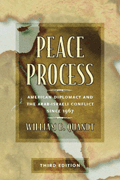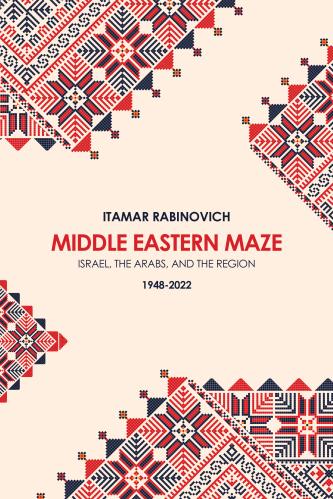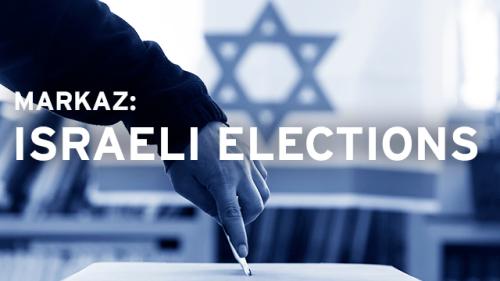Last Tuesday, a report on Israeli Channel 10 news sparked a flurry of speculation that Israeli Prime Minister Benjamin Netanyahu and Opposition Leader Isaac Herzog were nearing a deal—yet again—for a national unity government between the country’s two main political parties. Such a deal would bring Herzog’s Zionist Union party alliance, or at least Labor (its main constituent), into the governing coalition, bestowing it with ministerial portfolios while bolstering the parliamentary base and international reputation of Netanyahu’s government.
Such talk isn’t new. In fact, these negotiations have been ongoing from the very start of this government’s term, when Netanyahu formed a razor-thin coalition and was eager to enlarge it. A deal was nearly concluded last May. After months of vehement denials by both leaders, Herzog openly attempted to garner support among his skeptical party members to join the government, only for Netanyahu to sidestep the Zionist Union at the eleventh hour in favor of current Defense Minister Avigdor Liberman’s right-wing Yisrael Beiteinu party.
With Liberman on board, Netanyahu’s coalition now has 66 members (of 120) and he needs Herzog less. Following the May humiliation, Herzog’s standing has plummeted and his ability to lead the Zionist Union into the coalition is diminished. The Zionist Union bloc—comprised of Herzog’s Labor and Tzipi Livni’s Hatnua—may not even survive such a move, as Livni now opposes sharing power in a Netanyahu government. In fact, Livni has recently been courting independent political figures like former Prime Minister Ehud Barak in an apparent exploratory bid to form a new center-left bloc. Furthermore, even within Labor, several members have made clear they would not vote with the coalition, meaning that Herzog might enter it with only a handful of parliamentarians. On the right, Netanyahu would face fierce opposition to such a move from within his own Likud party and from the right-wing Jewish Home.
So why do the two leaders still seem eager to move ahead?
What’s in it for Netanyahu
Whether a deal is reached or not, Netanyahu has already profited from these rumors alone, which sap his Laborite rival’s legitimacy as an alternative to the ruling Likud. Herzog suffered a considerable loss of political capital during the last bout of unity talks before they were confirmed, and polls consistently predict that Zionist Union could lose at least half of its seats in the next election. Netanyahu has no incentive to put Labor out of its misery and end the negotiations.
Netanyahu may be genuine in his desire for a unity government, however. Taking the nominal lead on the Palestinian issue, a Foreign Minister Herzog could help shield Netanyahu’s government from international criticism. It could provide some cover against action by President Obama during his lame-duck period—a concern that has supposedly prompted Netanyahu to seek an agreement with Herzog before the U.S. elections on November 8.
Labor’s presence would also help counterbalance the coalition’s right-wing flank. Netanyahu has doubtless contemplated the recent rumblings of a revolt in the coalition by ministers and parliamentarians opposed to the dismantlement of a West Bank settlement outpost, scheduled to be carried out before the end of the year.
Additionally, a unity government could facilitate the passage of a two-year state budget, the main legislative hurdle any government in Israel faces. A successful budget passage would give Netanyahu freedom from his worst parliamentary headache until 2019, shortly before he must face elections.
What’s in it for Herzog
For Labor, the rationale for joining would be a mix of the substantive and the political interests of its leaders. Politically, the move could be deeply damaging to Labor as a whole—joining its archrival would further diminish its standing as a relevant alternative to Netanyahu and bolster the position of Yair Lapid, of the centrist opposition party Yesh Atid, who has emerged as Netanyahu’s strongest challenger at present. On the other hand, some of the individual senior Laborites, and especially Herzog, are eager to boost their leadership credentials with significant ministerial experience. Herzog was previously minister of welfare, but not a senior cabinet member; in a new government he could be foreign minister (a post Netanyahu has conspicuously held onto in addition to the prime ministership since the 2015 election). No other Labor member has held a senior post in over five years. By contrast, Lapid was minister of finance until 2015.
Substantively, Labor would have the opportunity to push forward its agenda from real positions of power, and, equally important for its members, to block the agenda of the more right-wing ministers from Likud and the Jewish Home parties. If Netanyahu were willing to break with the Jewish Home—a risky move—Labor might even get the ministry of justice, and with it the chairmanship of the Ministerial Committee for Legislation—a gatekeeper for all cabinet-sponsored bills and a key legislative position (though residing in the executive). The current minister of justice, Ayelet Shaked, skillfully promotes an agenda aimed at curtailing judicial oversight and has advanced a slew of legislation that Labor leaders have denounced as anti-democratic.
Herzog also wants to demonstrate his leadership on the Palestinian dispute. This may be a fool’s errand under a Netanyahu premiership, but Herzog has been adamant that an opportunity exists for a regional summit, one that would bring together Israel and Arab states who now share interests on a range of issues, from countering Iran’s role in the region to fighting Salafi jihadism. Former British Prime Minister Tony Blair pioneered an effort to produce such a summit during the last unity talks, in which he apparently spent months meeting Netanyahu and Herzog to broker Labor’s entry into the coalition in tandem with the leaders’ endorsement of the 2002 Arab Peace Initiative. Blair reportedly acted as an intermediary between them and Arab leaders in hopes of clarifying the initiative to mollify any Israeli concerns. The Arab states have long predicated their acquiescence to a regional peace summit, such as the one Egyptian President Abdel-Fattah al-Sissi offered on May 17, on Israel’s full acceptance of the parameters outlined in the initiative.
The current purported unity talks have predictably revived speculation on such a possibility; however, while Netanyahu has accepted the spirit of the initiative, he has rejected its full content as a basis for negotiation. He has held firm to this position despite some Arab states hinting that they would begin steps to normalize relations with Israel should it change its mind.
Nonetheless, Netanyahu would be delighted by a regional summit that demonstrated a new Arab-Israeli détente without first requiring substantial concessions toward a final status agreement with the Palestinians. Should talks stall and Labor’s political prospects suffer, all the better for him.









Commentary
Israeli national unity government redux?
October 14, 2016